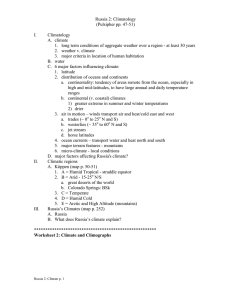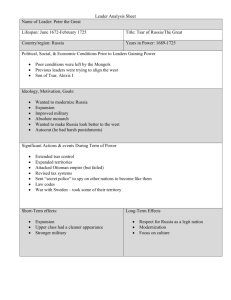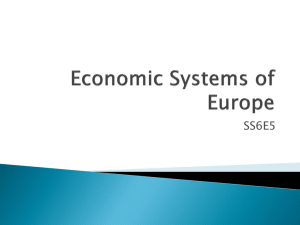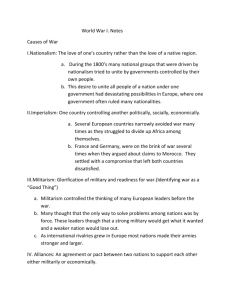Proceedings of 10th Asia - Pacific Business and Humanities Conference
advertisement
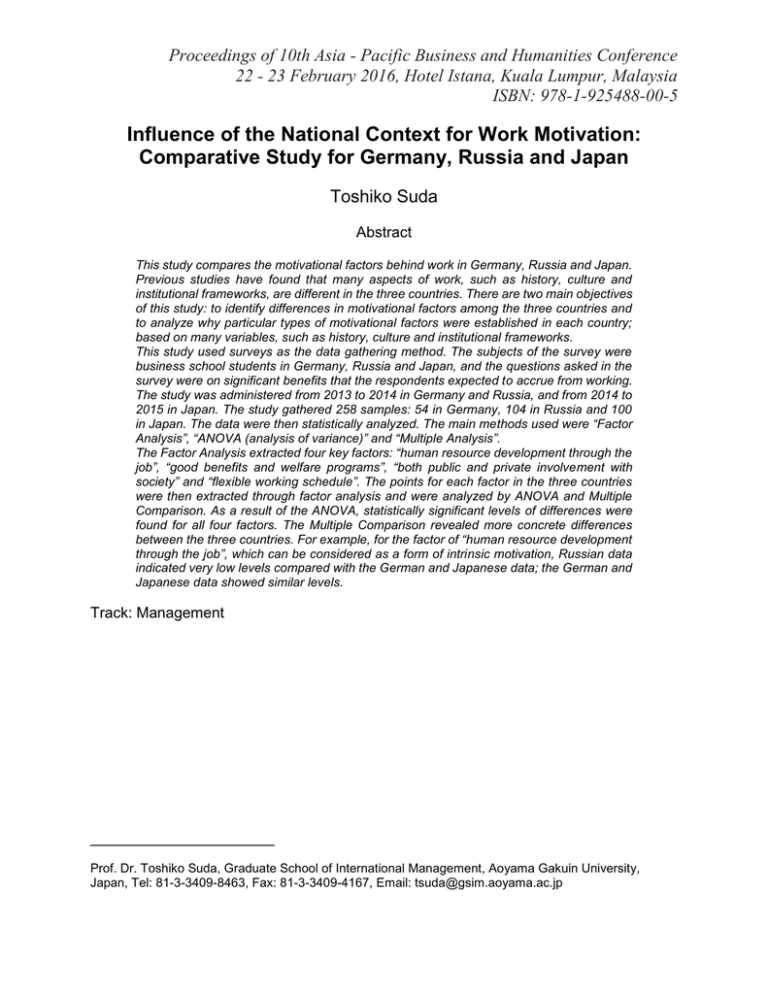
Proceedings of 10th Asia - Pacific Business and Humanities Conference 22 - 23 February 2016, Hotel Istana, Kuala Lumpur, Malaysia ISBN: 978-1-925488-00-5 Influence of the National Context for Work Motivation: Comparative Study for Germany, Russia and Japan Toshiko Suda Abstract This study compares the motivational factors behind work in Germany, Russia and Japan. Previous studies have found that many aspects of work, such as history, culture and institutional frameworks, are different in the three countries. There are two main objectives of this study: to identify differences in motivational factors among the three countries and to analyze why particular types of motivational factors were established in each country; based on many variables, such as history, culture and institutional frameworks. This study used surveys as the data gathering method. The subjects of the survey were business school students in Germany, Russia and Japan, and the questions asked in the survey were on significant benefits that the respondents expected to accrue from working. The study was administered from 2013 to 2014 in Germany and Russia, and from 2014 to 2015 in Japan. The study gathered 258 samples: 54 in Germany, 104 in Russia and 100 in Japan. The data were then statistically analyzed. The main methods used were “Factor Analysis”, “ANOVA (analysis of variance)” and “Multiple Analysis”. The Factor Analysis extracted four key factors: “human resource development through the job”, “good benefits and welfare programs”, “both public and private involvement with society” and “flexible working schedule”. The points for each factor in the three countries were then extracted through factor analysis and were analyzed by ANOVA and Multiple Comparison. As a result of the ANOVA, statistically significant levels of differences were found for all four factors. The Multiple Comparison revealed more concrete differences between the three countries. For example, for the factor of “human resource development through the job”, which can be considered as a form of intrinsic motivation, Russian data indicated very low levels compared with the German and Japanese data; the German and Japanese data showed similar levels. Track: Management ______________________ Prof. Dr. Toshiko Suda, Graduate School of International Management, Aoyama Gakuin University, Japan, Tel: 81-3-3409-8463, Fax: 81-3-3409-4167, Email: tsuda@gsim.aoyama.ac.jp


